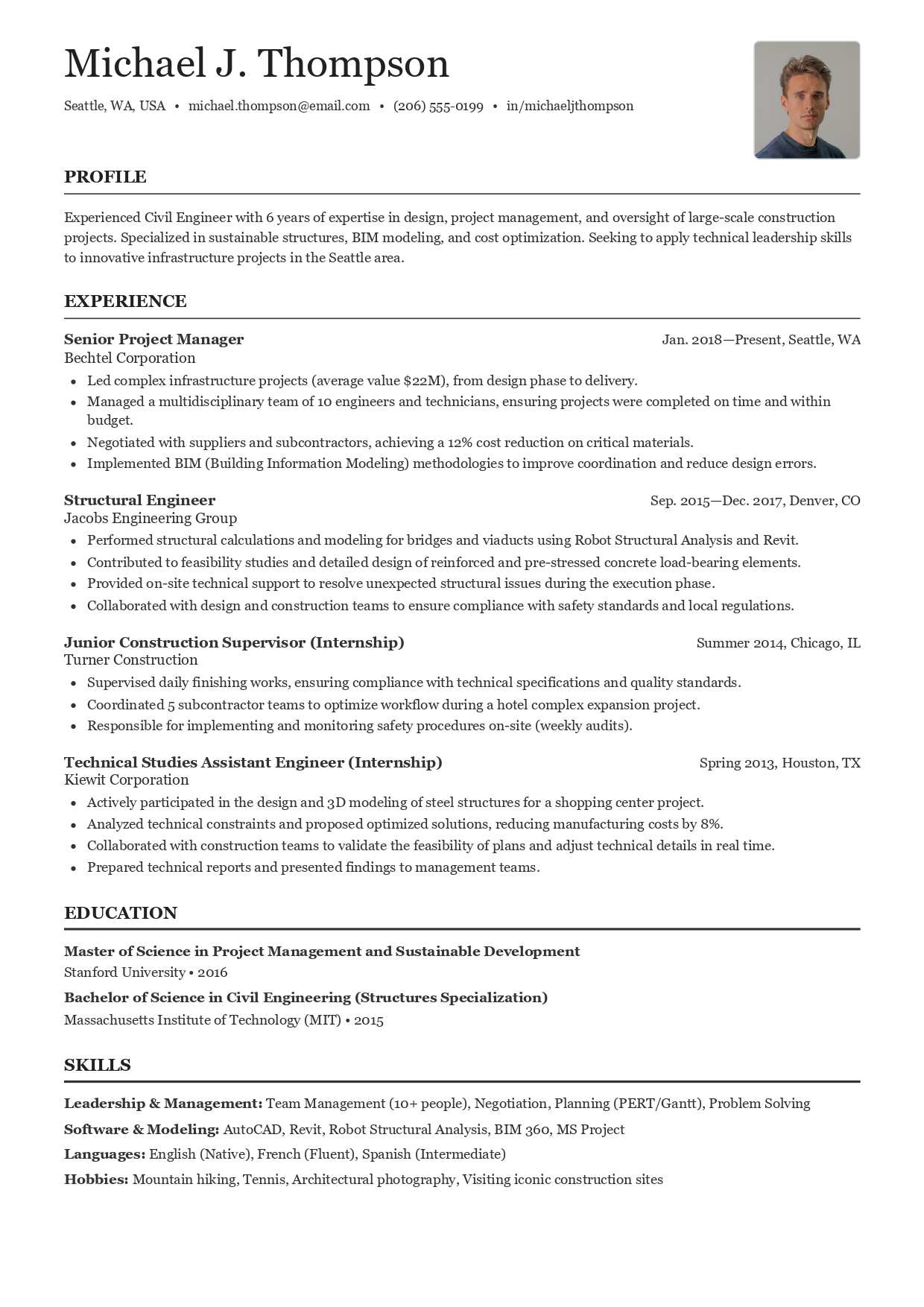An internship is your launchpad into the professional world. But to get your foot in the door, you need a resume that stands out—and that can feel impossible when your "Work Experience" section is empty. Here's the secret: for an internship resume, employers aren't looking for a long work history. They're looking for potential.
This step-by-step guide will show you how to craft a compelling internship resume that highlights your skills, passion, and academic achievements, proving you're the ambitious candidate they need, even with zero professional experience.
Step 1: Nail the Format and Contact Info
First impressions matter. A clean, professional format shows you're serious and detail-oriented.
- Length: Keep it strictly to one page. No exceptions.
- Font: Use a clean, readable font like Arial, Calibri, or Inter (size 10-12pt).
- Layout: Use clear section headings, bullet points, and plenty of white space.
Your contact information must be flawless and placed at the very top. Include your full name, phone number, a professional email address (like `firstname.lastname@email.com`), your city and state, and a link to your updated LinkedIn profile.
Step 2: Write a Targeted Resume Objective
Forget a generic summary. For an internship, a targeted Resume Objective is your best friend. In 2-3 sentences, it tells the employer who you are, what you're looking for, and how you can contribute. Tailor it for every single application.
Example Resume Objective:
Enthusiastic and detail-oriented Finance student at [Your University] with a strong foundation in financial modeling and data analysis from coursework. Seeking to apply analytical skills and a passion for market trends to the Summer Analyst Internship at [Company Name].
Step 3: Make Your Education Section Your Powerhouse
This is the most important section of your internship resume. It should be placed right after your objective. Don't just list your school—sell your academic career.
- Degree and Major: E.g., "Bachelor of Science in Computer Science".
- University Name & Location: List the full name.
- Expected Graduation Date: E.g., "Expected May 2026".
- GPA: Only include it if it's a 3.5 or higher.
- Relevant Coursework: This is crucial. List 3-5 advanced courses that directly relate to the internship (e.g., "Digital Marketing," "Software Engineering," "Corporate Finance").
- Honors & Awards: Dean's List, scholarships, or academic competitions.
Step 4: Reframe "Experience" - Projects, Volunteering, and More
This is where you turn what you've *done* into what you can *do*. Experience isn't just a paid job. It's about demonstrating your skills in any context. Create sections like "Projects," "Extracurricular Activities," or "Volunteer Experience."
Academic or Personal Projects
This is your secret weapon. Describe a significant project as if it were a job. What was the goal? What tools did you use? What was the outcome?
Example Project Entry:
Mobile App Development Project, Intro to Java Course (Fall 2024)
- Designed and developed a fully functional Android-based scheduling app using Java and XML.
- Collaborated in a team of 3 to implement user authentication features and a streamlined UI.
- Presented the final project to a panel of professors, receiving a 98% grade for functionality and design.
Extracurricular & Leadership Roles
Were you treasurer of a club? Did you organize an event? This is leadership and project management experience.
Example Leadership Entry:
Marketing Lead, University Business Club (2023 - Present)
- Manage the club's social media accounts, increasing Instagram followers by 30% in one semester.
- Organize and promote monthly networking events, boosting average attendance by 50 students.
Step 5: Create a Targeted Skills Section
Give recruiters a quick, scannable list of your abilities. Read the internship description carefully and include keywords from it.
- Hard Skills: List specific software, tools, and technical abilities. (e.g., Python, Adobe Photoshop, Microsoft Excel, Google Analytics, Spanish).
- Soft Skills: Include key interpersonal traits. (e.g., Teamwork, Communication, Problem-Solving, Time Management, Public Speaking).
Step 6: Proofread Obsessively
A typo can immediately disqualify you. It suggests a lack of attention to detail—a critical skill for any intern. Read your resume aloud, use a tool like Grammarly, and have a friend or career advisor look it over before you hit "send."
By shifting your focus from what you haven't done to what you *have* learned and accomplished, you can build an internship resume that opens doors and launches your career.
